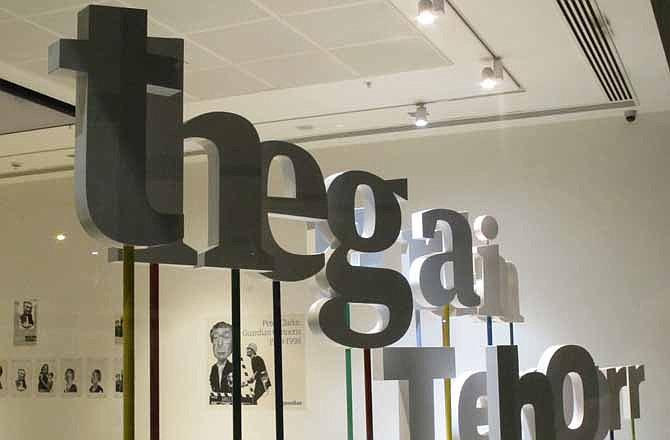LONDON (AP) - In an unusual warning, Europe's top human rights organization said Wednesday that Britain's reaction to the exposure of the United States' vast surveillance program had potentially troubling consequences for free expression.
Using language usually reserved for authoritarian holdouts in Eastern Europe or the Caucuses, the Strasbourg-based Council of Europe asked British authorities to explain why they ordered the destruction of computer equipment held by the Guardian newspaper - the publication at the center of the revelations - and the detention of a reporter's partner at London's Heathrow Airport.
"These measures, if confirmed, may have a potentially chilling effect on journalists' freedom of expression as guaranteed by ... the European Convention on Human Rights," Secretary General Thorbjoern Jagland said in an open letter to British Home Secretary Theresa May.
Britain's Home Office declined to comment on the letter late Wednesday.
The Council of Europe, a separate entity from the EU, runs the European Court of Human Rights, which enforces the rights code signed by the council's 47 member states. The watchdog body regularly intervenes on human rights issues across the continent, but the language deployed in the letter was more familiar from council communications to countries with shaky records on the rule of law.
Council spokesman Daniel Holtgen said the words "chilling effect" had previously been used in reference to situations in Turkey and Azerbaijan.
"Rarely has there been the case that we've expressed concern over a Western state," he said in a telephone interview. "The bottom line is: We have to have the same standards."
Britain has been on the defensive since Sunday, when London police used anti-terrorism powers to detain David Miranda - the partner of reporter Glenn Greenwald - at Heathrow and seize disks carrying what his lawyers said was sensitive journalistic material.
Greenwald has been at the center of the Guardian's reporting on the U.S. National Security Agency's secret domestic espionage program, and Miranda's detention drew outrage from many who saw the incident as a clumsy attempt to put an end to an embarrassing series of scoops.
The next day, Guardian Editor Alan Rusbridger revealed that British spies had overseen the destruction of hard drives carrying the leaked material which has served as the basis for much of the paper's reporting, sending intelligence agents into the newsroom's basement to watch as the disks were smashed with angle grinders and drills.
Although Rusbridger said other copies of the leaks exist elsewhere and British officials defended the move as an attempt to keep the sensitive intelligence out of foreign hands, the image of spies overseeing the destruction of journalists' hard drives rang alarm bells across Europe.
Holtgen posed a rhetorical question: What would have happened had a journalist's partner been detained in Moscow, or if a Russian newspaper had had its hard drives smashed?
"You would have the Western press all over Russia," he said.
"We need to apply the same standards to Western countries - including founding members of the Council of Europe, such as France, the U.K., or Germany," he said. "It's not an explicit, harsh criticism, but it is a reminder that we are following this."
U.K. officials have previously justified the detention of Miranda on the grounds that he was believed to be carrying classified documents which could be useful to terrorists.
British officials have also made no apology for smashing the Guardian's computers.
Deputy Prime Minister Nick Clegg argued the leaked data being kept by in the Guardian's newsroom could have seriously damaged national security if it had to fallen into the wrong hands.
The council isn't the only one asking questions.
Keith Vaz, chairman of Parliament's Home Affairs Select Committee, has demanded that Prime Minister David Cameron make a statement about the issue to Parliament when it returns from summer recess next month.
And lawyers acting for Miranda say they plan to go to London's High Court on Thursday to demand an injunction preventing British authorities from using or sharing the data they seized during Sunday's detention.
---
Jamey Keaten reported from Paris. Danica Kirka in London contributed to this report.

